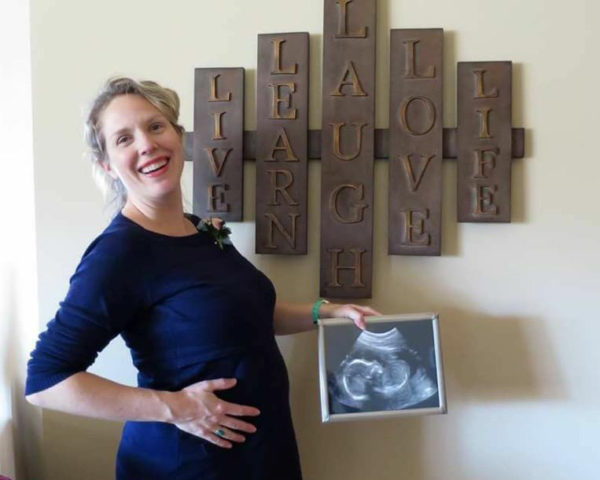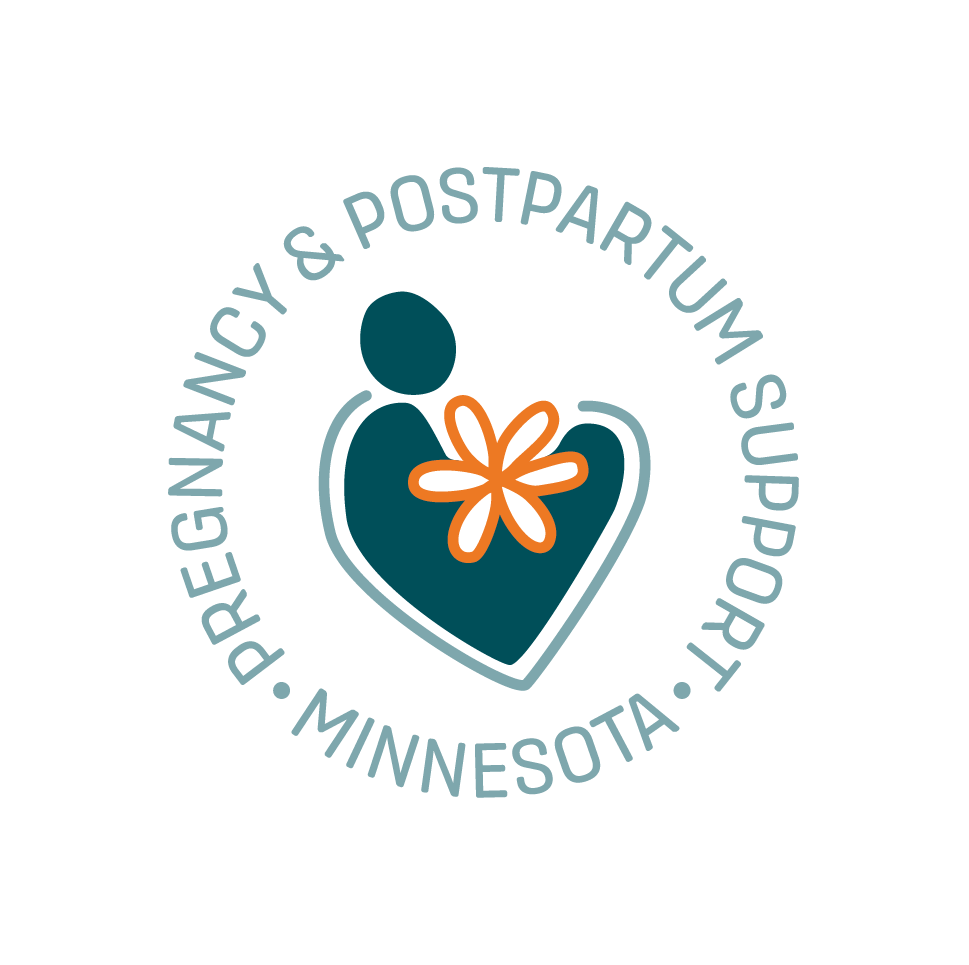Stacy’s Gift serves as the bridge between families and their providers, so that neither have to navigate alone.
“In Stacy’s absence, the burden now falls on us to be as kind and compassionate to each other as she was with us. Let her legacy be one of kindness and making people smile.”
~ Russell, Stacy’s brother
Meet Stacy…

Stacy Ann Gottwaldt 6/7/75-8/16/16
Stacy was thrilled to be having a baby, but struggled significantly with a mood disorder in the postpartum period, and took her life in 2016. Her family’s wish is that others will not have to face this loss, and have shared what they wish they had known. Bringing this information to you is Stacy’s Gift.
Stacy’s Gift is about helping friends and family members get information and learn how to get their loved one the help they need.
Tragedy has led to an amazing collaboration between PPSM (PSI-MN) and Stacy’s family and friends, so that we can prevent further losses.
“It seemed that so many of Stacy’s friends and also her counselors knew she had Postpartum depression. Harry and I have gone over and over this and we don’t recall anyone sharing that with us, not even Stacy using those words. Sometimes I feel so dumb about this.”
~Mary, Stacy’s mom
Suicide is the 7th leading cause of death in new moms.
It is hard to talk about suicide, and hard to know what to do if you are concerned that a loved one could harm themselves.
Learn more by clicking on the tabs below.
“I tried to talk to Stacy about [PPD] once I found out she was pregnant, but I didn’t know how to put it into words. I also honestly didn’t expect her to have it, she was such a positive person. We did talk about it more after Sage was born. I tried to tell her that it gets better, she was doing all the right things…I was hoping she could hold on until Sage was old enough to show her love for her mom.”
~ Melanie, Stacy’s friend
15% of pregnant women, and 14% of postpartum women report ‘‘thoughts of self-harm”; 2% die by suicide. (source)
Women who complete suicide during this time tend to be White, 35 years of age or older, or on Medicaid. They are more likely to live in a suburban area. (source)
More than 50% of women who died by suicide in the postpartum period had ≥1 emergency department or hospital visit between their delivery and death. (source)
- If your loved one has a history of mental illness, substance abuse, childhood abuse, or trauma, the risk of having suicidal thoughts increases. Share this risk factors checklist with your provider.
- It can be scary to think about asking your loved one if they are having thoughts about harming themselves. There is evidence that asking about it can
 actually prevent the person from acting on their thoughts. (source, source)
actually prevent the person from acting on their thoughts. (source, source) - This handout has some great suggestions for talking with your loved one. Asking about suicide is not going to cause them to do something to harm themselves. And if they say they are having these thoughts, take them seriously.
“Intrusive thoughts” are unwanted thoughts that are very common for new parents to experience.
They are upsetting, because they are about bad things happening to themselves or their baby.
- They are not likely to mention these thoughts out of fear or shame. Ask them.
- If they are upset about these thoughts, that is a GOOD sign. They will often take significant steps to avoid harm coming to themselves or anyone else, like not wanting to leave the house out of fear of getting in an accident, or not bathing the baby out of fear that the baby could drown.
- Most importantly, intrusive thoughts mean there is little to no risk (citation) that the parent will act on them. Talking about them helps! Handout
“When I think back to that time, I think of things that might have helped in some way. I guess the thing that amazes me the most is that Stacy had to do a lot of the work and research herself, which is surprising, right?”
~Katie, Stacy’s Sister-in-Law
Why it’s important for you to be involved:

Screening recommendations are not being consistently implemented.
- Screening recommendations are not being consistently implemented, so she may not be asked how things are going.
- Many new moms do not follow through with getting help, even when recommended.
- There is a lot of incorrect information about taking medications when pregnant or breastfeeding. Encourage her to talk with her prescriber before abruptly stopping any medication, and to only use trusted resources for information.
There are so many options! Most people find that doing more than one thing helps the best, and it might be hard for her to ask for help herself, or to know where to start.
- Rule out underlying health conditions with a provider, and notify the provider about any changes in medications.
- Mental health support, that may include therapy, a mom’s program, and/or medication. Make sure that the provider has specific training in perinatal mental health.
- Integrative support, such as acupuncture, yoga, and many more!
- Consider a postpartum doula or asking for additional help from friends and family.
- Support groups, with both in-person or online options. Many allow bringing baby along, if that is desired!
“My idea would be for professionals to involve families…and perhaps another close family member and friend. And to strongly encourage the Mother to have family attend these sessions with her… I took Stacy to counselors and [the hospital] and stayed in the waiting room or walked the corridors until she was done.”
~ Mary, Stacy’s mom
This is why we developed the Perinatal Care Partner Pact.
This form can be printed and brought to any appointments where your loved one would like you to be involved, and be able to ask questions.
Getting adequate sleep is crucial, but difficult with a new baby.
Setting yourselves up for success from the beginning (even in the hospital) is ideal.

Getting adequate sleep is crucial, but difficult with a new baby.
- Instead of asking how they are sleeping, ask, “Are you able to sleep when the baby sleeps?” If the answer is no, do some brainstorming about what is getting in the way.
- If she is experiencing intrusive or racing thoughts, anxiety, or says that she only needs a little sleep in order to have a lot of energy (possible sign of mania/bipolar) it is a good idea to reach out to her provider. A temporary medication to help with sleep, or an office visit might be warranted.
- Create a sleep plan that allows longer, uninterrupted, periods of sleep (ideal is 4-5 hours). Take shifts, let her sleep in another room for part of the night and wear earplugs or white noise, or ask/hire nighttime help from a postpartum doula, friend or family member.
- If breastfeeding, have her pump before going to sleep.
Newborns wake often- this is normal.
You are not doing something wrong. It is hard!
* Newborn babies often only sleep for short periods of time (40 minutes to 3 or 4 hours at a time) and don’t often find a pattern or rhythm to their sleep for several months.
* Babies may not “sleep through the night” for several months. And what “sleeping through the night” means varies.
Since sleep is so important, the above tricks may help. The key is to not tell yourself that you are doing something wrong because your baby isn’t sleeping for long periods of time, at least for the first few months. Around that time, many babies start to sleep longer stretches. Seek trusted resources (like this one) instead of the ones that are sending you a message that you are doing something wrong.
-

Weather permitting, get out of the house together.
Attend the first well-child checkups and help set up your partner’s six week postpartum follow up. While best practice is that providers screen new moms* at both of these appointments, many do not. Sometimes, new moms under-report, or are afraid to report, their symptoms. If you have concerns, please share them with her provider.
(*best practice would be to screen any new parent, however, current recommendations by organizations like ACOG or the APA only mention screening for moms.) - Contact the Helpline or use our website to find local perinatal specialists and community resources.
- If you have a referral from someone else, make phone calls or send messages to determine availability.
- Contact support groups to confirm time and location.
- Offer to care for the baby (and other children, if applicable) while they attend an appointment or group.
- Ask the provider’s office or county agency for suggestions about additional support resources that are often low cost or free.
- Weather permitting, get out of the house together. Take a short walk, sit outside, or go to a mall and walk around inside.
- Bring food, a warm beverage, water, offer to help with kids so they can take a bath or shower (or a nap!). These are the things that get neglected, especially when one is feeling depressed or anxious.
- Take care of yourself! If you are the partner, you will likely not be screened, or asked how you are doing. You are important too. In order to care for your loved one, you need to make sure you put on your own oxygen mask!
Information about this needs to spread far and wide not only to mothers but to their family members, at the earliest stages of family planning.”
~ Katie, Stacy’s sister-in-law
One of the main challenges Stacy faced was difficulty with breastfeeding. This is extremely common. There can be a lot of guilt, stress and pressure around this topic. Please remind your loved one:
- Breastfeeding is NOT easy. It is OK to need help!
- It is OK to let someone else help with nighttime feedings (when possible) so that you can sleep.
- It is OK to make a decision to stop breastfeeding (ideally, taper off gradually versus stopping abruptly).
- It is OK to want to do what you can to make breastfeeding work. And….
- It does NOT mean you are a failure if things do not go the way you would like them to.
- Your health & well-being matters, too.
In addition, there are many medications that are compatible with breastfeeding. If your loved one is struggling with a mood or anxiety disorder, and believes that they cannot take medication and continue breastfeeding, please refer to evidence-based information, and contact a provider about this decision to decide if the benefits outweigh the risks.
What challenges did you have navigating finding support for your loved one? Confidential email: director@ppsupportmn.org
“This is a tragic story, but I do not believe it had to end like this…if her story can help bring to light the need for specialty care for this not so uncommon affliction, her memory and life can still have a positive effect on mothers who are struggling with PPD”
~ Harry, Stacy’s dad
We want to remove barriers for parents, families and providers to ensure people get the help that they need.

An estimated 66% of pregnant women in the US report that their depression went undiagnosed.
PPSM (PSI-MN) offers continuing education opportunities for professionals about identification and treatment of perinatal mental health. PPSM (PSI-MN) is actively involved with legislation to work on writing policy that creates much-needed changes in healthcare and public services.
- An estimated 66% of pregnant women in the US report that their depression went undiagnosed.
- Less than 50% of pregnant women with depression symptoms are receiving treatment (source)
- Of women with PPD, at least 44.8% were prescribed an SSRI and 21.4% attended a visit with a mental health professional (source)
- Immigrants are screened at a lower rate than the general public (source)
Get involved locally
- Connect with Legislative Director, Michele Anderson
- Legislation clip from Harry & Mary

